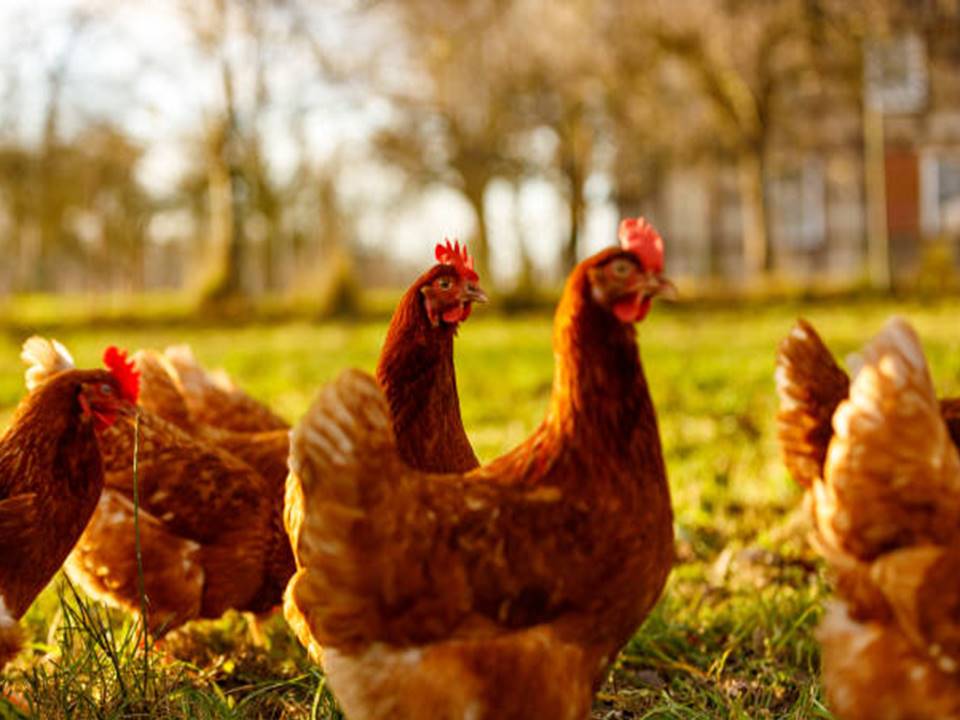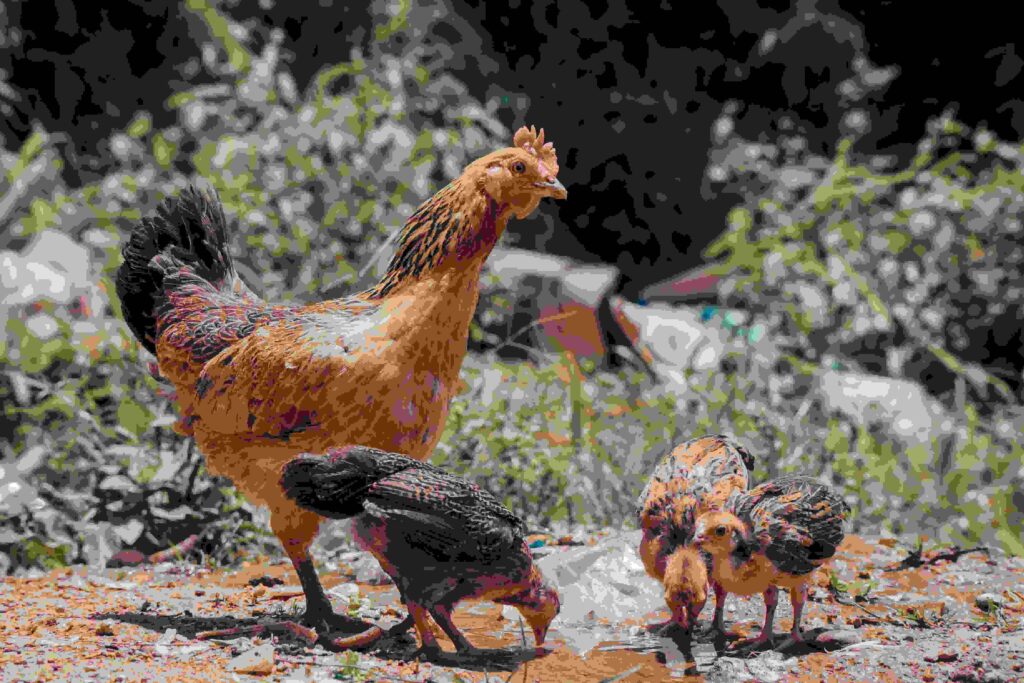Raising chickens naturally is a rewarding venture for anyone interested in sustainable living and fresh, organic eggs. Whether you’re a homesteader or just curious about backyard farming, raising chickens can provide nutritious food, entertainment, and valuable lessons in self-sufficiency. This beginner’s guide covers everything you need to know to get started with raising chickens the natural way, from choosing the right breeds to feeding and care routines. Let’s explore the steps and tips for raising happy, healthy chickens while keeping your approach eco-friendly and organic.
Choosing the Right Chicken Breeds
When it comes to raising chickens naturally, selecting the right breeds is crucial. Not all chickens are the same; some breeds are better suited for egg production, while others may thrive in free-range or cold-weather environments. Here are a few beginner-friendly breeds to consider:
- Rhode Island Reds: Known for their hardiness and excellent egg-laying ability, they are ideal for beginners.
- Plymouth Rock: A friendly and docile breed, they are also great for eggs and can tolerate cold weather well.
- Leghorns: These are excellent layers but may require a bit more space as they are quite active.
For a comprehensive list of the best chicken breeds for sustainable and organic farming, be sure to check out this article on the top chicken breeds for sustainable farming. Choosing the right breed ensures that your chickens will thrive in your specific environment and meet your production goals.
Setting Up a Natural Chicken Coop
Once you’ve decided on your breeds, it’s time to prepare their living space. A well-designed chicken coop is essential for the health and safety of your chickens. When raising chickens naturally, the emphasis should be on creating a coop that promotes natural behaviors like foraging, dust bathing, and roosting. Here are key points to consider:
- Size and Ventilation: Chickens need plenty of room to move around. A good rule of thumb is to have at least 4 square feet of space per chicken inside the coop, and 10 square feet per chicken in the outdoor run. Ensure proper ventilation to keep fresh air circulating and reduce ammonia build-up from droppings.
- Nesting Boxes: Each chicken should have access to a clean, comfortable nesting box for laying eggs. Ensure the boxes are dark and cozy, with plenty of clean bedding such as straw or wood shavings.
- Predator Protection: Make sure the coop is secure from predators like foxes, raccoons, and hawks. Use hardware cloth (not chicken wire) to protect your chickens from small predators that may dig under the coop or squeeze through small spaces.
Incorporating natural elements like perches made from untreated wood, deep litter systems for composting manure, and access to outdoor spaces for free-ranging will ensure your chickens are raised in a healthy, natural environment.
Feeding Your Chickens Naturally
One of the core elements of raising chickens naturally is providing them with an organic and balanced diet. Chickens are omnivores, and they thrive on a diet that includes grains, seeds, insects, and fresh greens. Here’s how you can ensure they are well-nourished:
- Free-Range Foraging: Allowing your chickens to roam freely in your yard or garden enables them to forage for insects, worms, and weeds, which is crucial for their health. This natural behavior not only supplements their diet but also reduces feed costs.
- Organic Feed: When feeding chickens, opt for organic, non-GMO feed. Organic feed is free from pesticides, antibiotics, and synthetic additives, making it a healthier choice for both the chickens and their eggs.
- Kitchen Scraps and Treats: Chickens love kitchen scraps such as vegetable peels, fruits, and grains. However, avoid feeding them processed foods, salty snacks, or anything that contains toxic substances like onions, chocolate, or garlic.
- Supplementing with Grit and Calcium: Chickens need grit to help them digest food properly, as well as calcium to maintain strong eggshells. You can provide this naturally by offering crushed oyster shells or limestone grit.
Feeding chickens a well-rounded diet and ensuring they have access to fresh water at all times will keep them healthy, productive, and more resistant to diseases.
Maintaining Chicken Health the Natural Way
Natural chicken care is all about prevention and holistic treatments. By taking a proactive approach to your chickens’ health, you can minimize illness and the need for antibiotics. Here’s how to keep your flock healthy:
- Cleanliness is Key: Keeping the coop clean is essential to preventing illness. Clean out nesting boxes regularly and change the bedding to keep the environment hygienic. Implement a deep-litter method to encourage composting within the coop, which naturally controls odors and provides a warm, dry space for your flock.
- Natural Remedies for Parasites: Chickens are prone to parasites like mites, lice, and worms. Instead of chemical treatments, you can use diatomaceous earth, a natural powder that helps to kill parasites when sprinkled in the coop and on chickens.
- Herbs for Health: You can grow medicinal herbs in and around your chicken coop to promote health naturally. Herbs like oregano, thyme, and garlic have antibacterial properties and can be added to their feed or water. Mint and lavender can also be placed in nesting boxes to repel insects.
- Dust Baths: Chickens clean themselves naturally by taking dust baths. Provide them with a spot in their run filled with loose dirt or sand where they can roll around and clean their feathers. This helps to deter mites and lice.
Natural care focuses on giving your chickens the best environment to maintain their health and wellness without relying on chemicals or artificial treatments.
Sustainability and Benefits of Raising Chickens Naturally
Raising chickens naturally has many benefits, not only for the chickens but also for your garden and household. Sustainable practices can be integrated into your chicken-raising routine, making it more eco-friendly and productive:
- Egg Production: Naturally raised chickens will provide you with fresh, organic eggs. These eggs are typically higher in nutrients like omega-3 fatty acids and vitamin E compared to conventional eggs.
- Composting and Fertilizer: Chicken manure is a fantastic addition to compost. It is rich in nitrogen, which is excellent for boosting the health of your garden. Be sure to compost the manure properly before applying it to plants, as fresh manure can be too strong for direct use.
- Pest Control: Chickens are excellent natural pest controllers. They help reduce populations of bugs, such as beetles, caterpillars, and ticks, in your yard or garden. Their foraging habits reduce the need for chemical pesticides.
- Mental and Emotional Benefits: Many people find raising chickens to be a stress-relieving hobby. Watching chickens roam and interact can be highly therapeutic, providing a connection to nature and daily life rhythms.
The goal of raising chickens naturally is to create a symbiotic relationship where both you and your chickens benefit. By practicing sustainability, you can create a healthy environment for your chickens that also contributes to the health of your household and garden.
Summary
Raising chickens naturally is a rewarding and sustainable way to provide fresh eggs and contribute to a self-sufficient lifestyle. By selecting the right breeds, building a natural coop, feeding them organically, and focusing on holistic health, you can enjoy the benefits of happy, healthy chickens. Not only will your chickens thrive in this environment, but you’ll also gain valuable experience in sustainable living.
If you’re ready to start raising chickens naturally, it’s important to continue learning and adapting. There are many resources available to help you along the way. For a detailed guide on starting your organic chicken farm, check out this comprehensive guide for beginners. Additionally, make sure to familiarize yourself with the International Federation of Organic Agriculture Movements (IFOAM) guidelines to ensure your practices align with global organic standards. Happy chicken farming!




This was really helpful!
Can you be more specific about the content of your article? After reading it, I still have some doubts. Hope you can help me.
I don’t think the title of your article matches the content lol. Just kidding, mainly because I had some doubts after reading the article.
Your enticle helped me a lot, is there any more related content? Thanks!